Unit 10: Global Contemporary, 1980 CE to Present
4.0(7)
Card Sorting
1/36
Earn XP
Description and Tags
Art History
AP Art History
Unit 10: Global Contemporary, 1980 CE to Present
Contemporary-Art
Modern-Architecture
Guggenheim-Museum-Bilbao
MAXXI-National-Museum-of-XXI-Century-Arts
The-Gates
Vietnam-Veterans-Memorial
Horn-Players
Summer-Trees
Androgyne-III
A-Book-from-the-Sky
Pink-Panther
Untitled-#228
Dancing-at-the-Louvre
Trade-(Gifts-for-Trading-Land-with-White-People)
Earth’s-Creation #Rebellious-Silen
En-la-Barberia-no-se-Llora
No-Crying-Allowed-in-the-Barbershop
Pisupo-Lua-Afe
lectronic-Superhighway
The-Crossing
Pure land
Lyring wiht the wolf
Darkytown rebellion
the sing after fragonard
old man's cloth
stadia II
Praying Mantra
Shibboleth
Sunflower Seeds
University/Undergrad
Last updated 7:47 AM on 3/31/23
Name | Mastery | Learn | Test | Matching | Spaced | Call with Kai |
|---|
No analytics yet
Send a link to your students to track their progress
37 Terms
1
New cards
Action painting
an abstract painting in which the artist drips or splatters paint onto a surface like a canvas in order to create his or her work
2
New cards
Assemblage
a three-dimensional work made of various materials such as wood, cloth, paper, and miscellaneous objects
3
New cards
Earthwork
\
a large outdoor work in which the earth itself is the medium
a large outdoor work in which the earth itself is the medium
4
New cards
Installation
a temporary work of art made up of assemblages created for a particular space, like an art gallery or a museum
5
New cards
Kitsch
something of low quality that appeals to popular taste
6
New cards
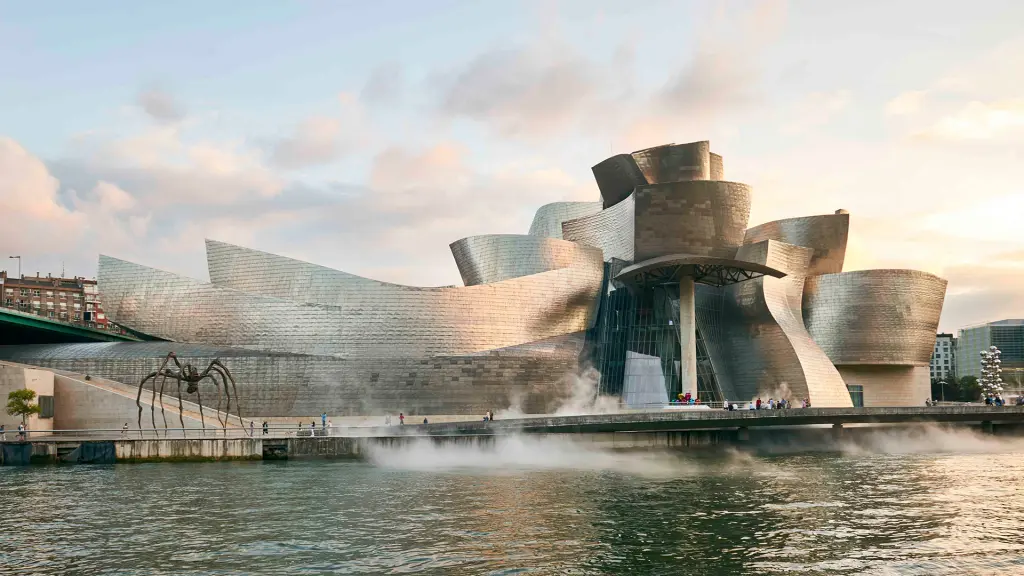
Guggenheim Museum Bilbao
* By Frank Gehry (1997);
* Building has swirling forms and shapes that contrast with the industrial landscape of Bilbao.
* Modern art museum featuring contemporary art in a contemporary architectural setting.
* Building has swirling forms and shapes that contrast with the industrial landscape of Bilbao.
* Modern art museum featuring contemporary art in a contemporary architectural setting.
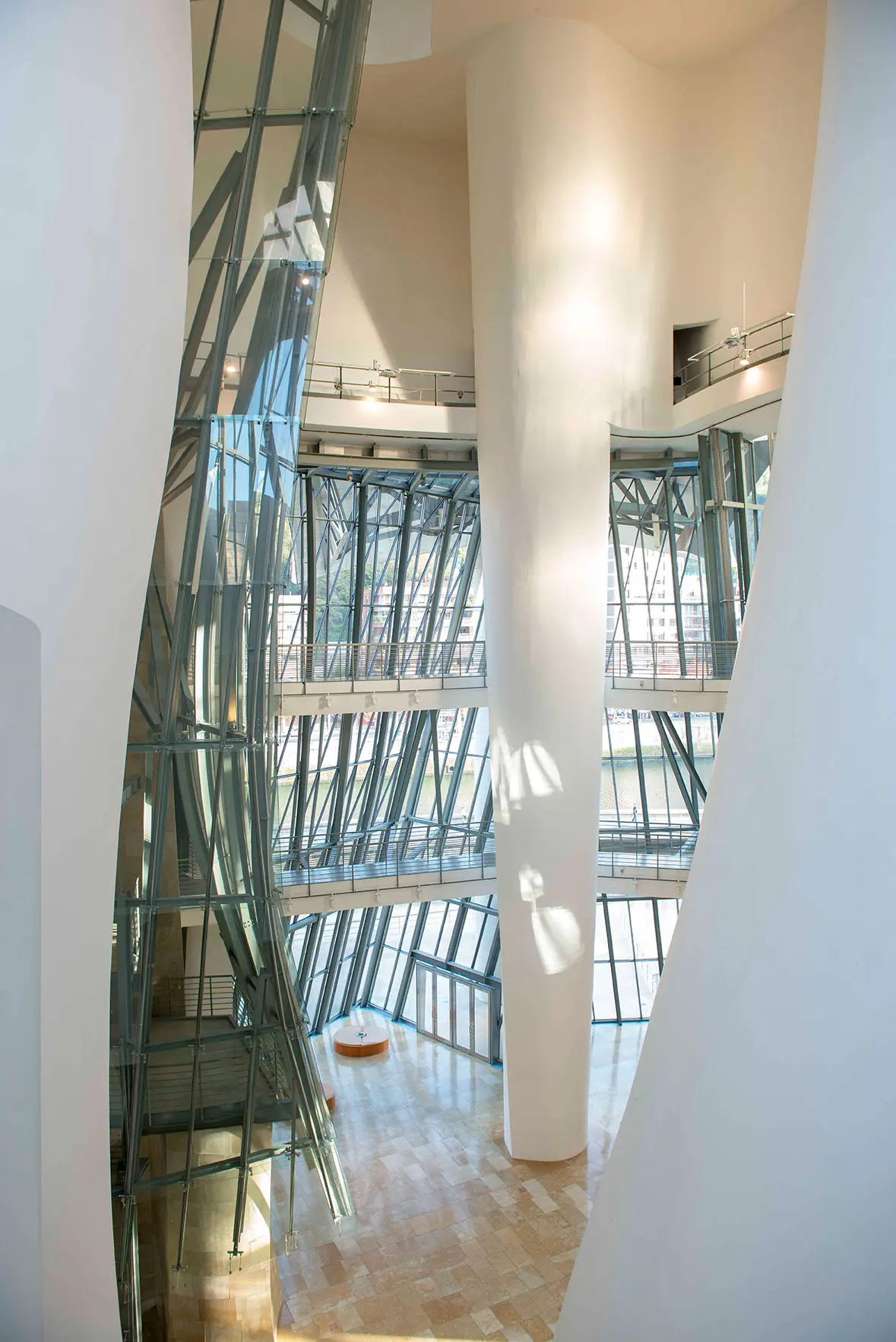
7
New cards
Bilbao effect
The revitalization of the port area of Bilbao is called the “_________,” a reference to the impact a museum can have on a local economy.
8
New cards
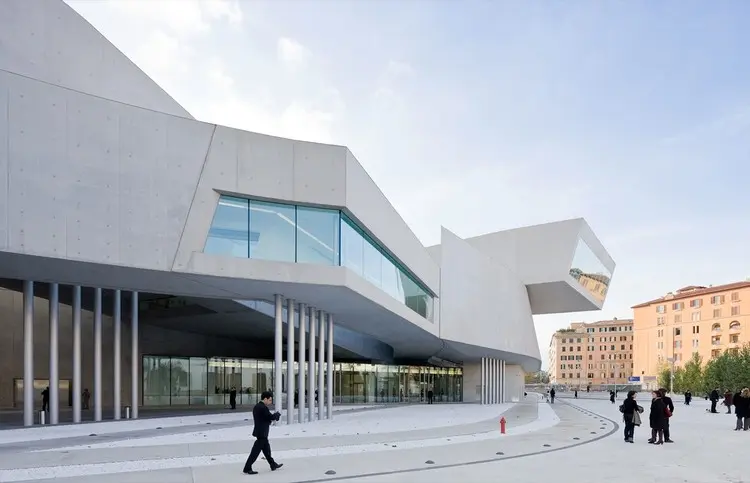
MAXXI National Museum of XXI Century Arts
* By Zaha Hadid (2009);
* Internal spaces are covered by a glass roof.
* Walls flow and melt into one another.
* Two museums, a library, an auditorium, and a cafeteria.
* The complex specializes in art of the twenty-first century.
* Internal spaces are covered by a glass roof.
* Walls flow and melt into one another.
* Two museums, a library, an auditorium, and a cafeteria.
* The complex specializes in art of the twenty-first century.
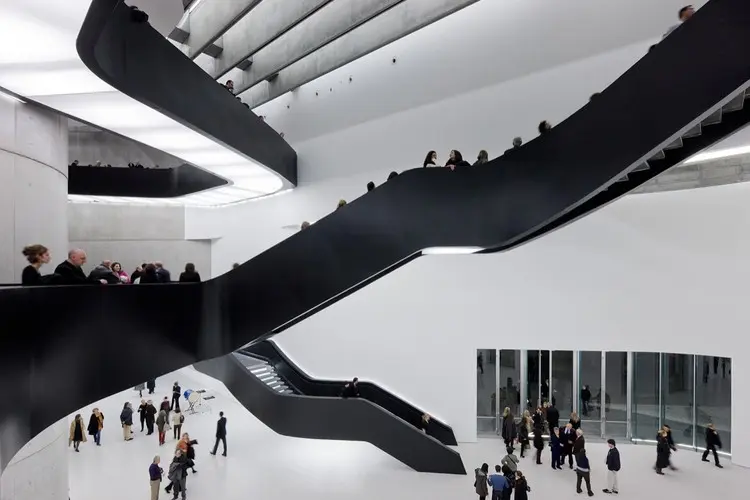
9
New cards
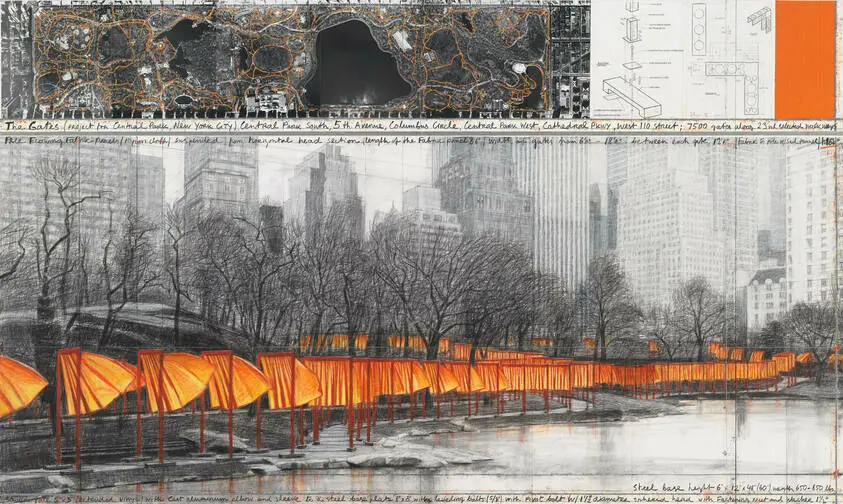
The Gates
* By Christo and Jeanne-Claude (1979–2005);
* 7,503 installations - of free-hanging saffron-colored fabric panels.
* mounted in the winter so the colors would have maximum impact.
* 16-foot-tall
* 7,503 installations - of free-hanging saffron-colored fabric panels.
* mounted in the winter so the colors would have maximum impact.
* 16-foot-tall
10
New cards

Vietnam Veterans Memorial
* By Maya Lin (1982);
* Dedicated to the deceased and missing-in-action soldiers of the Vietnam War.
* Black granite, a highly reflective surface.
* Dedicated to the deceased and missing-in-action soldiers of the Vietnam War.
* Black granite, a highly reflective surface.
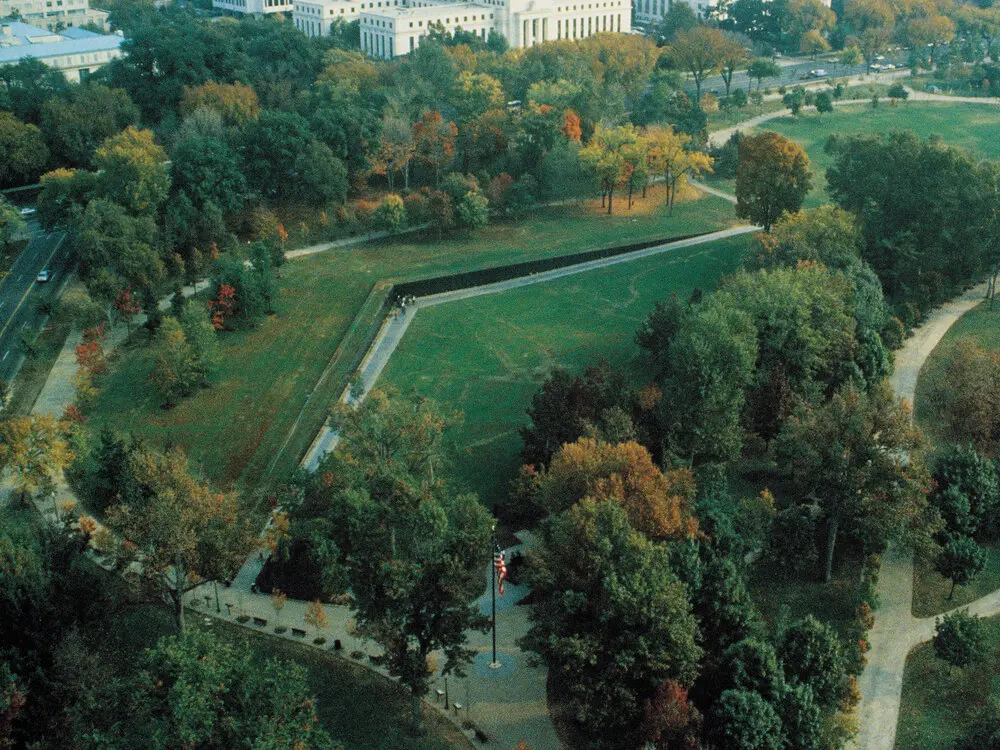
11
New cards
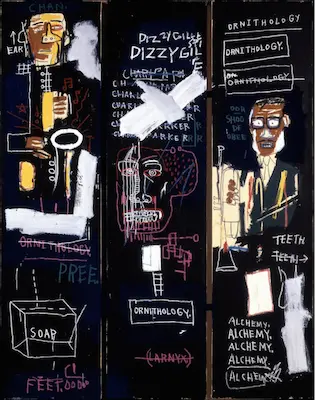
Horn Players
* By Jean-Michel Basquiat (1983);
* The painting glorifies African-American musicians.
* Words such as “soap” critique racism.
* Used meaningless words “DOH SHOO DE OBEE” in improvisational
* The painting glorifies African-American musicians.
* Words such as “soap” critique racism.
* Used meaningless words “DOH SHOO DE OBEE” in improvisational
12
New cards
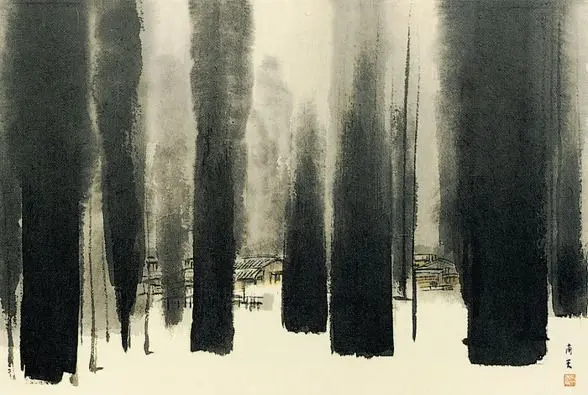
Summer Trees
* By Song Su-nam (1983);
* Large vertical lines of various thickness.
* Subtle tonal variations of ink wash. Inspired by Western abstraction.
* Large vertical lines of various thickness.
* Subtle tonal variations of ink wash. Inspired by Western abstraction.
13
New cards
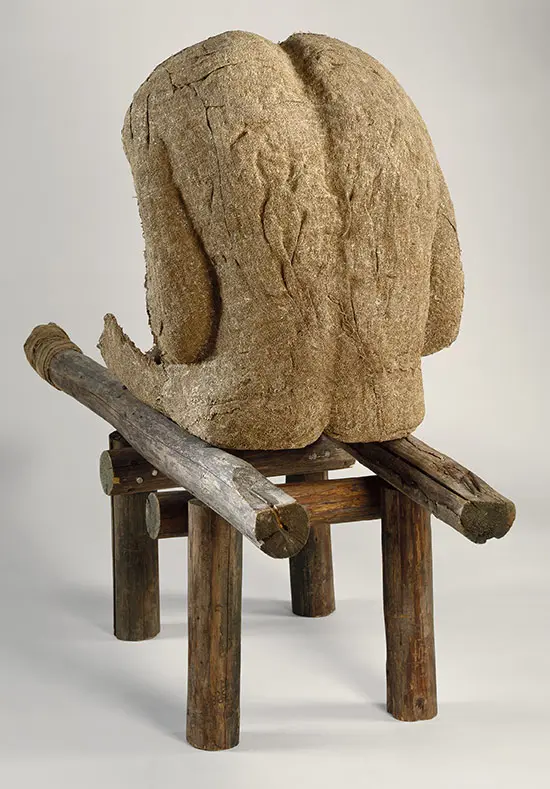
Androgyne III
By Magdalena Abakanowicz (1985); The hardened fiber has the appearance of crinkled human skin set in earth tones. Sits on a low stretcher of wooden legs. Pose suggests meditation and/or perseverance.
14
New cards
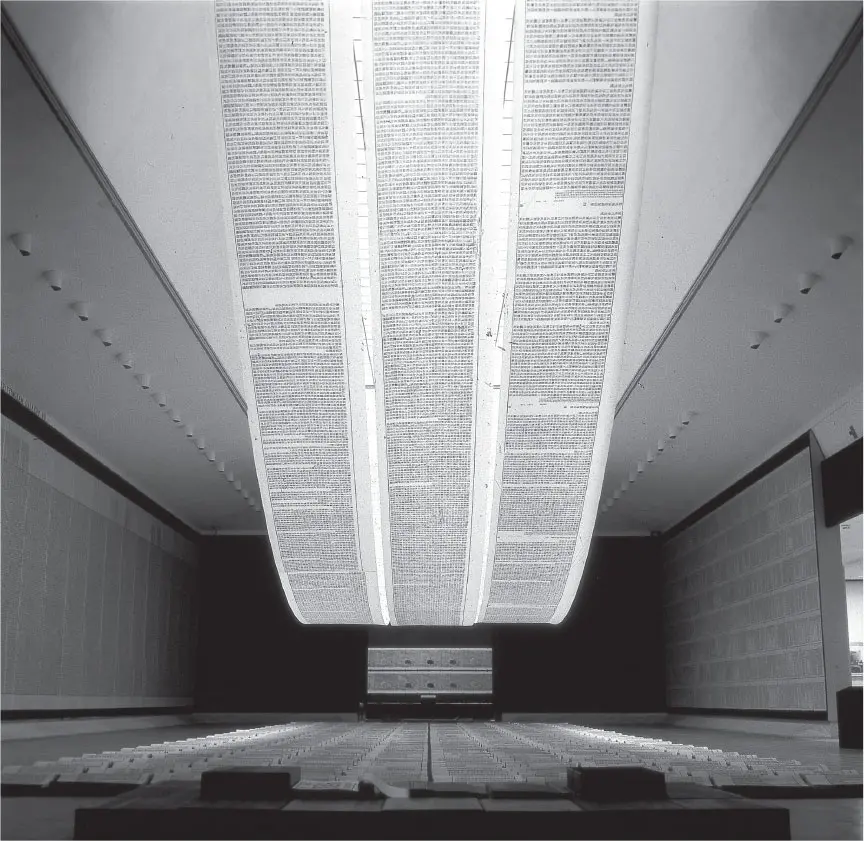
A Book from the Sky
By Xu Bing (1987–1991); 400 handmade books are placed in rows on the ground. One walks beneath printed scrolls hanging from the ceiling. All of the Chinese characters are inventions of the artist and have no meaning.
15
New cards
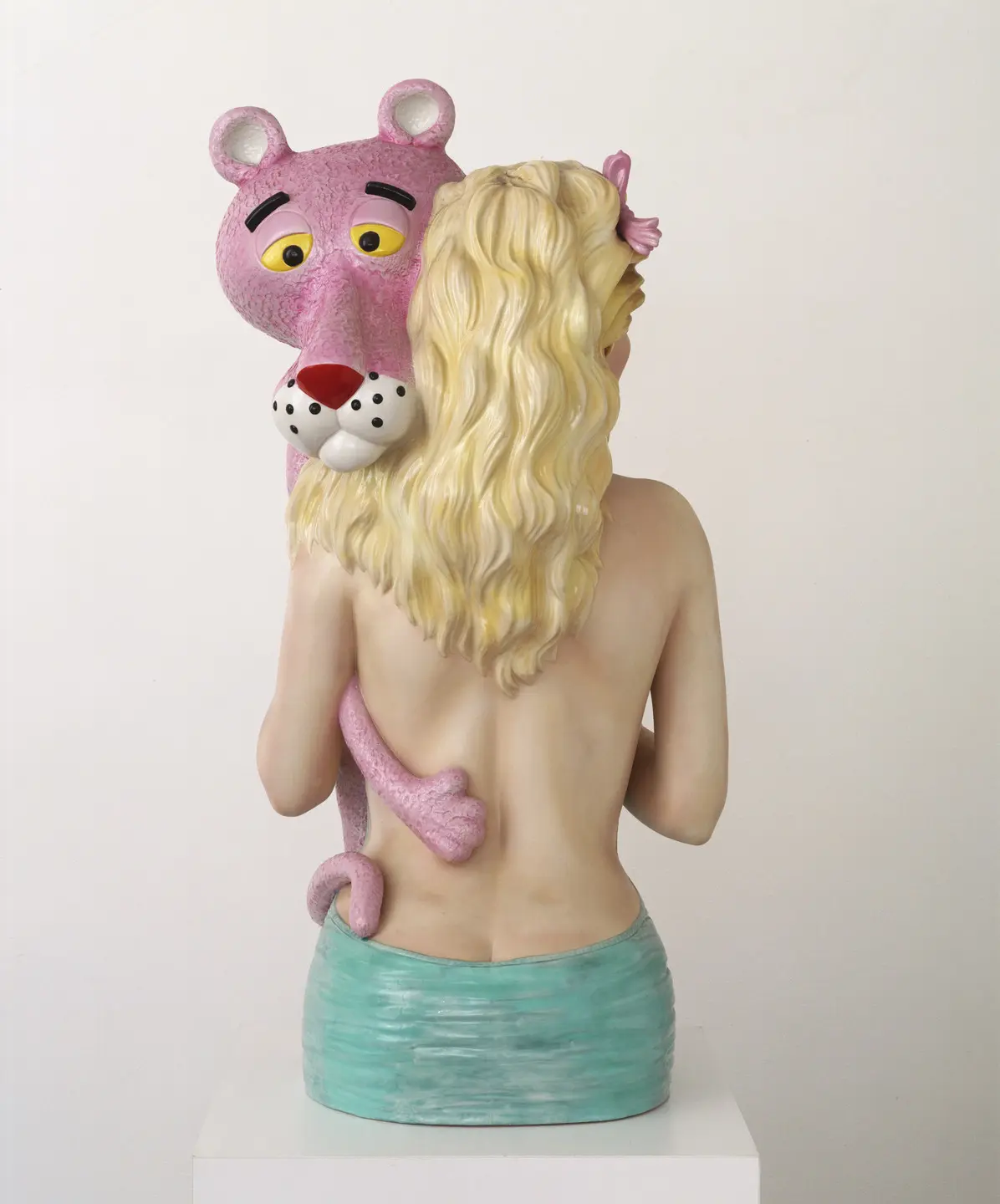
Pink Panther
By Jeff Koons (1988); Artificially idealized female form: overly yellow hair, bright red lips, large breasts, pronounced red fingernails; overtly fake look. The woman is Jayne Mansfield. A cartoon character, generally seen as an animated figure.
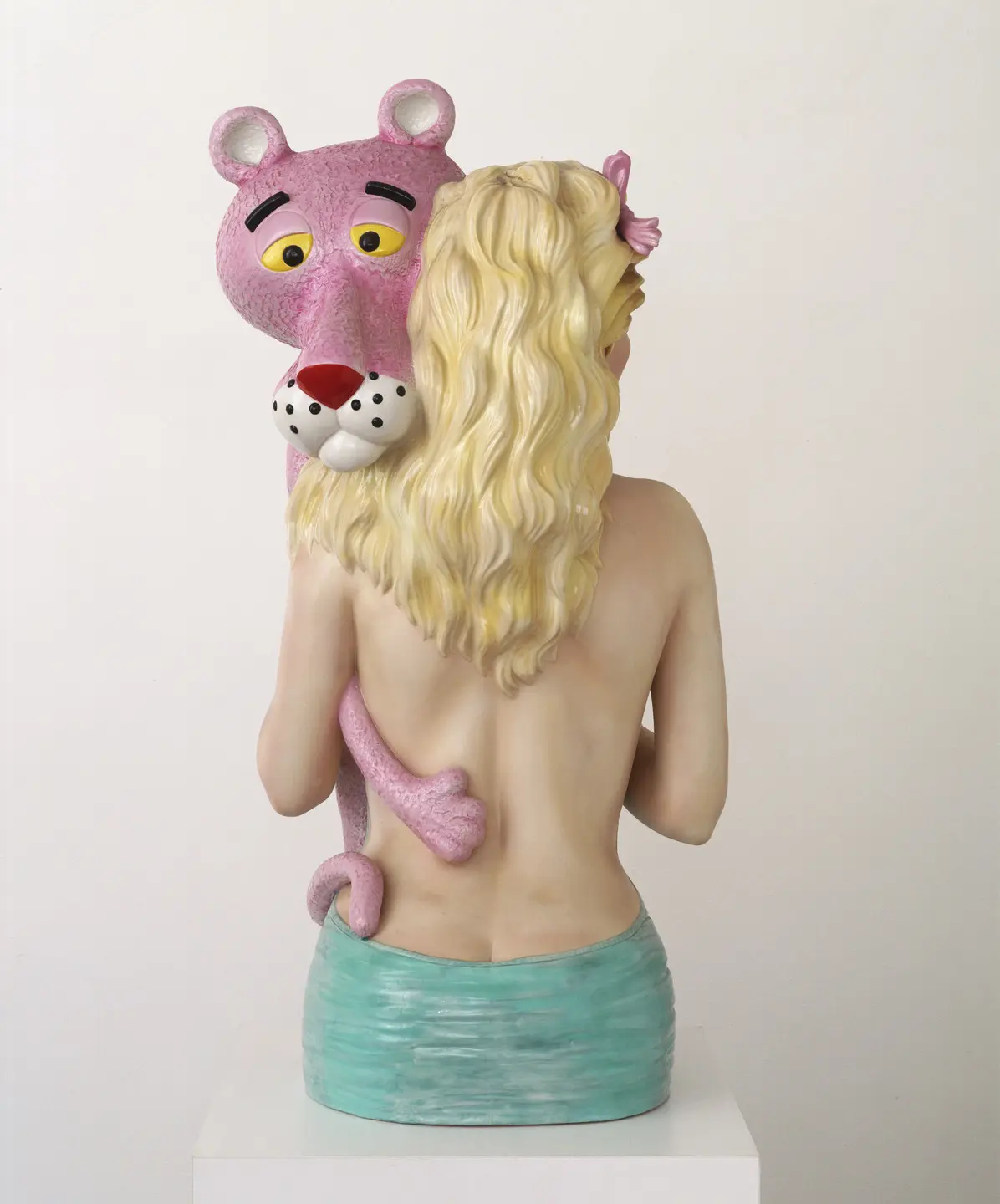
16
New cards
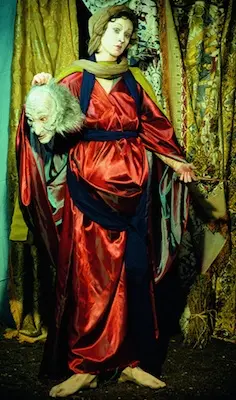
Untitled #228
By **Cindy Sherman** (1990); This image explores the theme of the Old Testament figure Judith decapitating Holofernes. Richly decorative drapes hang behind the figure. Judith lacks any emotional attachment to the murder that has taken place.
17
New cards
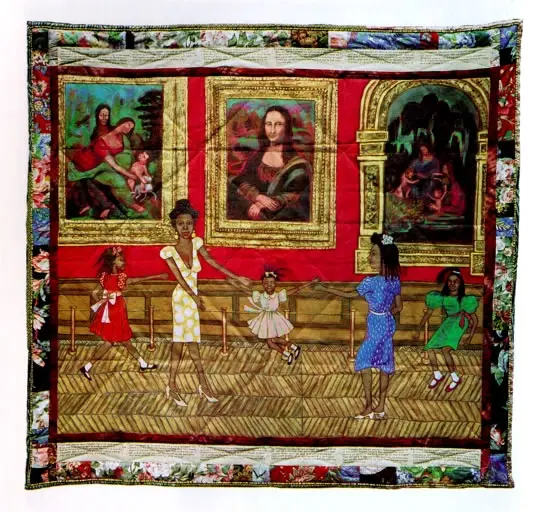
Dancing at the Louvre
By Faith Reinggold (1991); From the series The French Collection; Part I; #1; The artist combines the traditional use of oil paint with the quilting technique. Feminist and racial issues dominate the work.
18
New cards
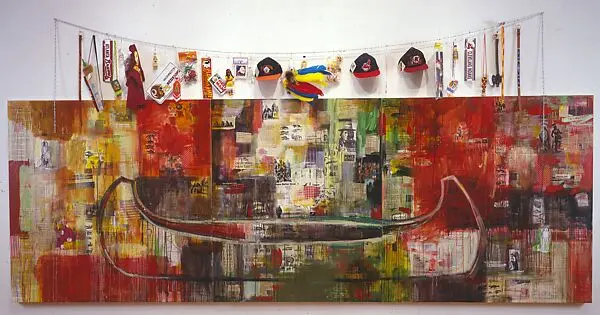
Trade (Gifts for Trading Land with White People)
By Jaune Quick-to-See-Smith (1992); This work is a combination of collage elements and abstract expressionist brushwork. The work was meant as the “Quincentenary Non-Celebration” of European occupation of North America
19
New cards
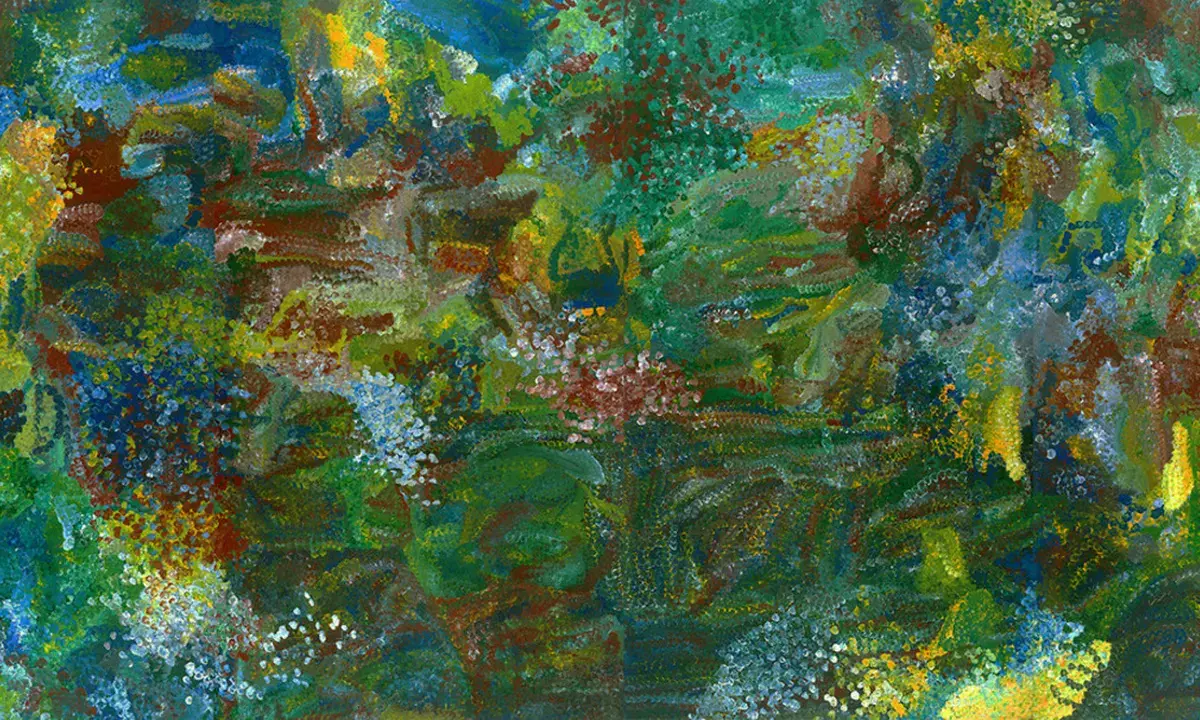
Earth’s Creation
By Emily Kame Kngwarreye (1994); The work references the color and lushness of the “green time” in Australia after it rains and the Outback flourishes. The artist employed the dump-dot technique
20
New cards
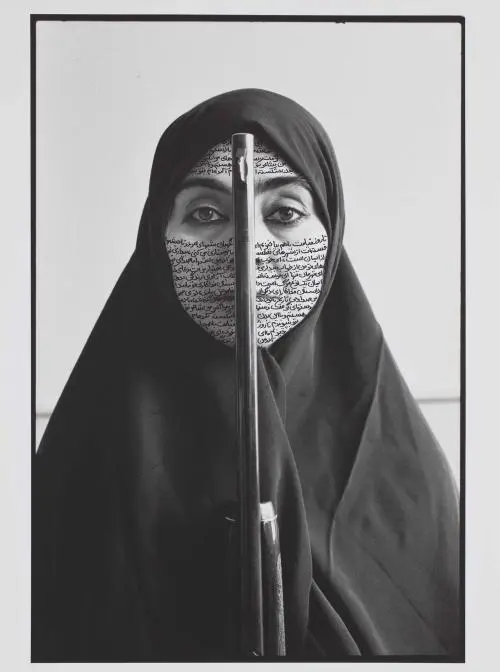
Rebellious Silence
\
By Shirin Neshat (1994); Poem written on the face is in Farsi, the Persian language; the poem expresses piety. Expresses the artist’s duality as both Iranian and American.
By Shirin Neshat (1994); Poem written on the face is in Farsi, the Persian language; the poem expresses piety. Expresses the artist’s duality as both Iranian and American.
21
New cards
Chador
a type of outer garment, like a cloak, that allows only the face and hands of Iranian women to be seen.
22
New cards
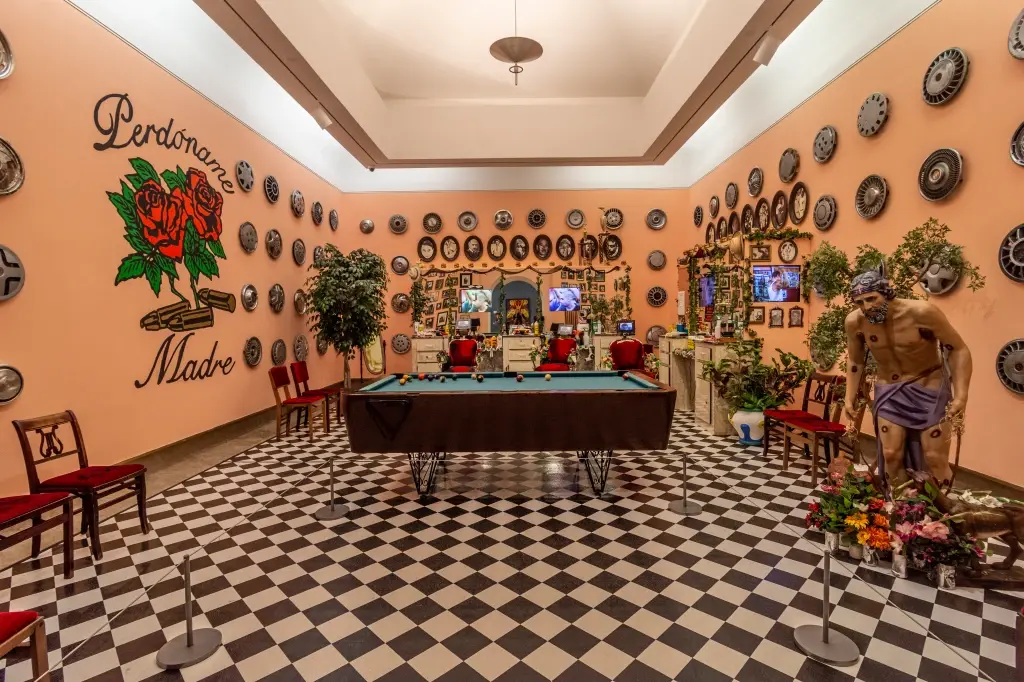
En la Barberia no se Llora
By Pepón Osorio (1994); This is a large installation recreating the center of Latino male culture: the barbershop. Originally a temporary work constructed in a neighborhood building
23
New cards
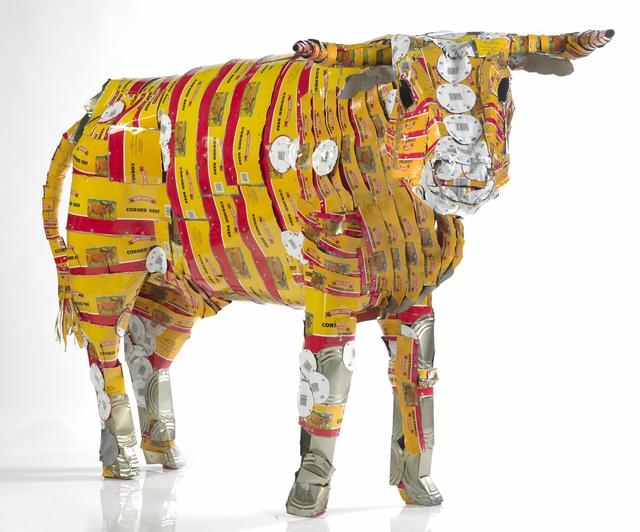
Pisupo Lua Afe
By Michel Tuffery (1994); Life-size sculpture of a bull made from flattened cans of corned beef. The artist introduces a tone of irony in that the cow is made of hundreds of opened cans of cow meat.
24
New cards
pisupo
a Samoan language variant of “pea soup,” the first canned food in the Pacific
25
New cards
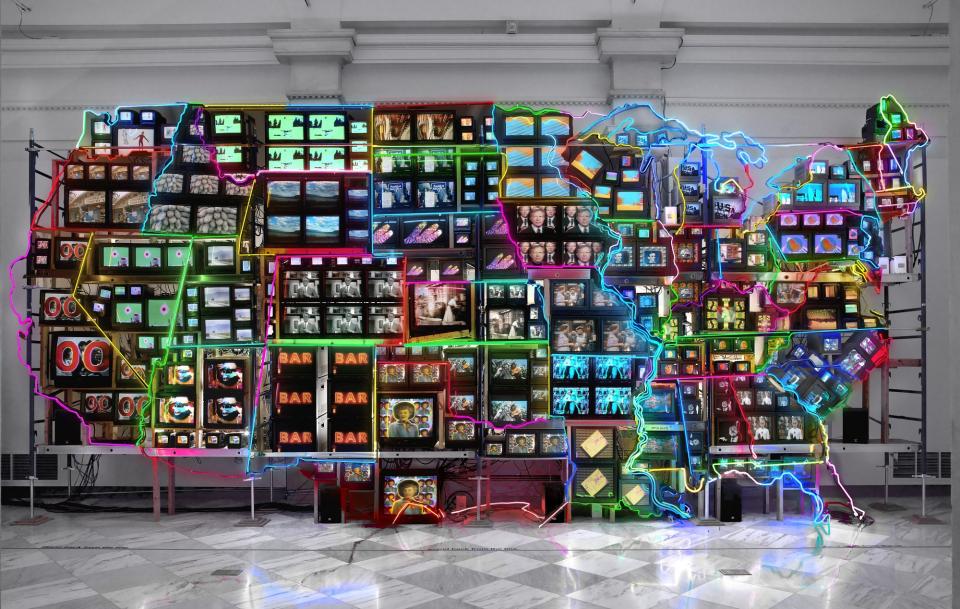
Electronic Superhighway
By Nam June Paik (1995); Mixed-media installation (49-channel closed-circuit video installation, neon, steel, and electronic components). Neon outlines symbolize multicolored maps of each 50 states.
26
New cards
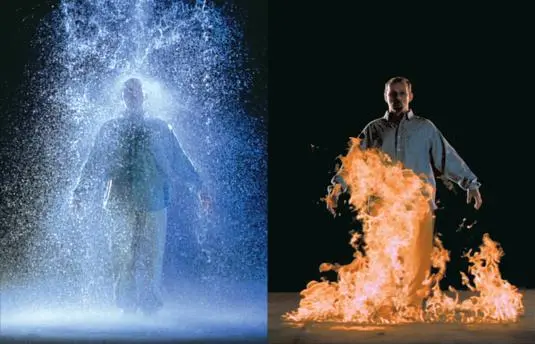
The Crossing
By Bill Viola (1996); Performer: Phil Esposito. Photo: Kira Perov. Two channels of color video project from opposite sides of large dark gallery onto two large, back-to-back screens suspended from the ceiling and secured on the floor.
27
New cards
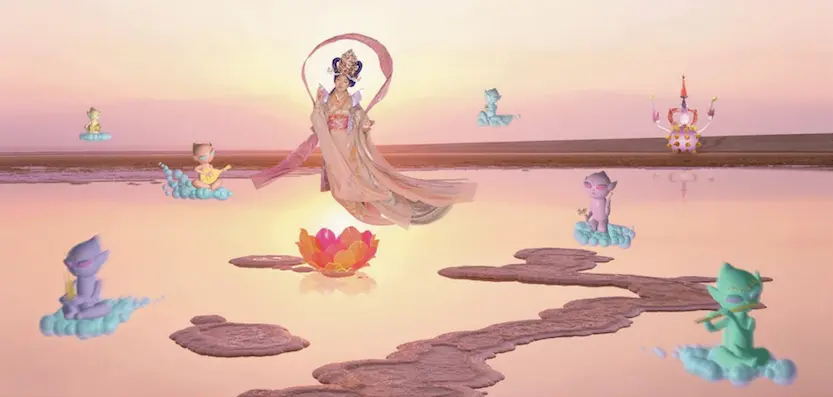
Pure Land
By Mariko Mori (1998); Animated figures of lighthearted aliens play musical instruments on cloudsl; A lotus blossom floats on water. Set in a landscape evoking the Dead Sea
28
New cards
Kichijōten
Heian deity; Essence of beauty and the harbinger of prosperity and happiness.
29
New cards
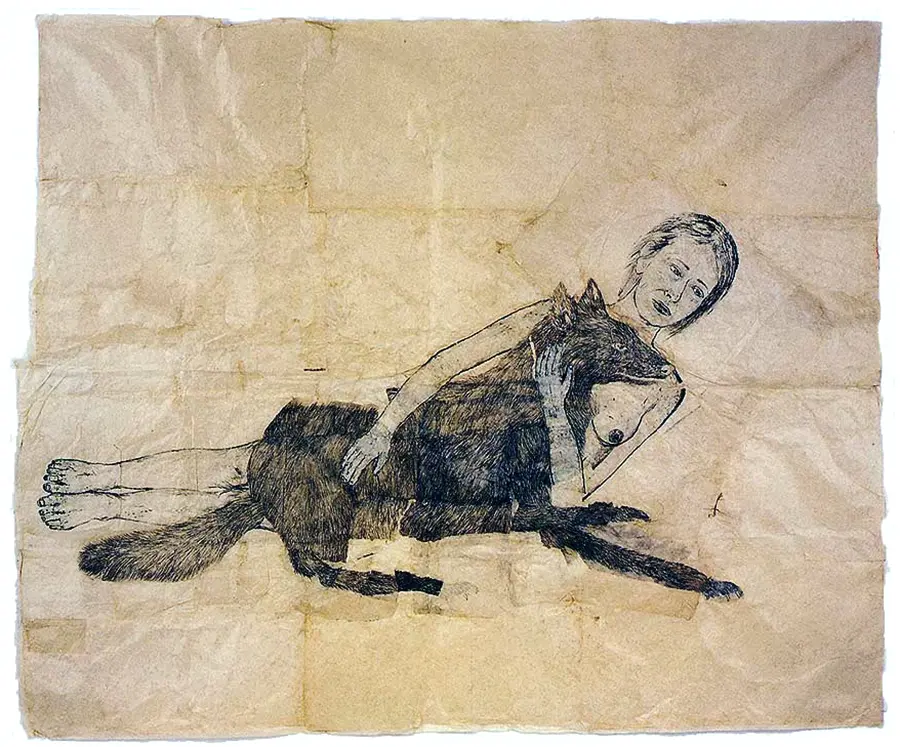
Lying with the Wolf
By Kiki Smith (2001); This is a large, wrinkled drawing pinned to a wall; reminiscent of a tablecloth or a bedsheet. Female strength is emphasized in the woman lying down with the wild beast. The wolf seems tamed by the woman’s embrace
30
New cards
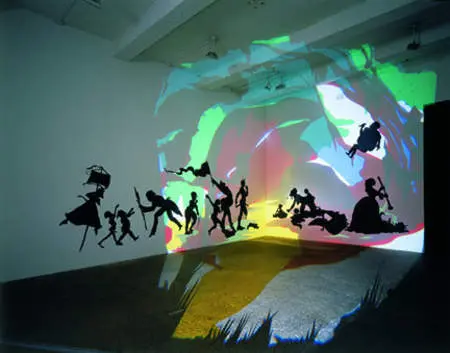
Darkytown Rebellion
By Kara Walker (2001); Overhead projectors throw colored light onto the walls, ceilings, and floor. Explores how stereotypes and caricatures of African-Americans have been presented.
31
New cards
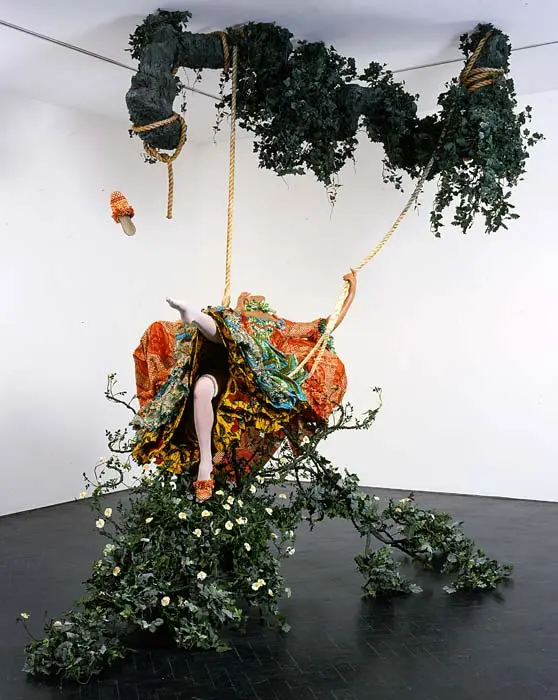
The Swing (after Fragonard)
By Yinka Shonibare (2001); The artist was inspired by Fragonard’s work. This work is a life-size headless mannequin. Flowering vines are cast to the floor.
32
New cards
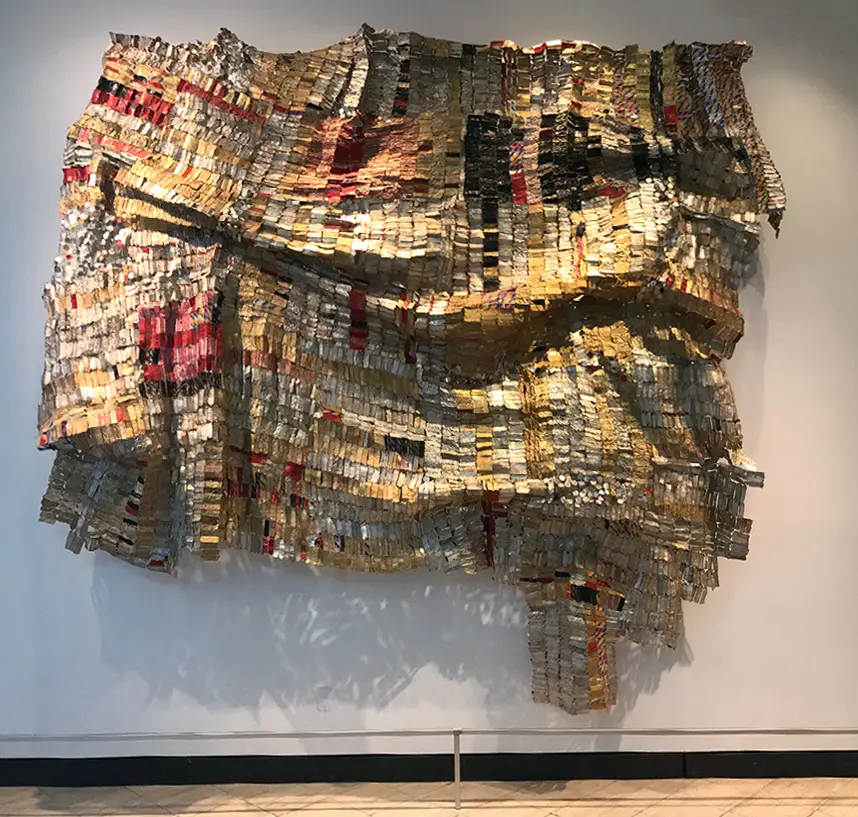
Old Man’s Cloth
By El Anatsui (2003); One thousand drink tops are joined by wire to form a cloth-like hanging. Artist converts found materials into a new type of media that lies somewhere between painting and sculpture. Combines aesthetic traditions of his home country of Ghana
33
New cards
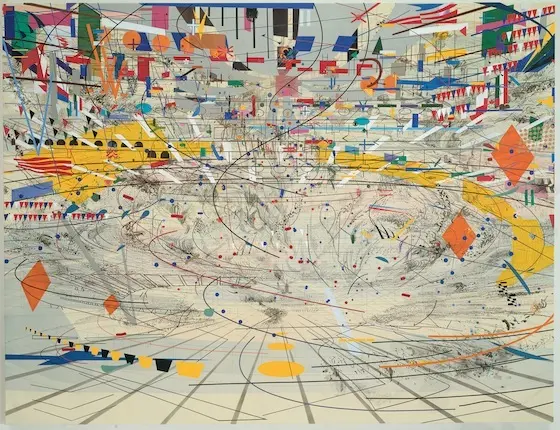
Stadia II
By Julie Mehretu (2004); Although the paintings are done with abstract elements, the titles allude to their meaning. Flags can represent, in a positive or negative way, national pride, patriotism, or nationalism.
34
New cards
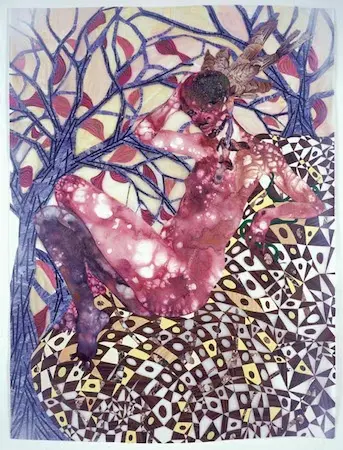
Preying Mantra
By Wangechi Mutu (2006); Collaged female figure composed of human and animal parts, objects, and machine parts. A green snake interlocks with her fingers; bird feathers appear on the back of her head.
35
New cards
Cyborg
a person whose function is aided by a mechanical device or whose powers are enhanced by computer implants.
36
New cards
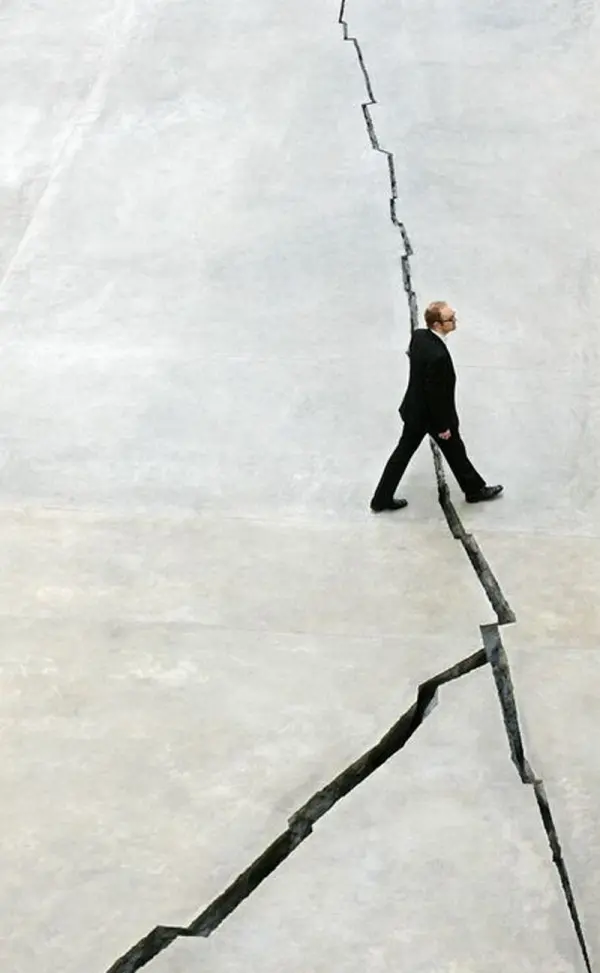
Shibboleth
By Doris Salcedo (2007–2008); This is an installation that features a large crack that begins as a hairline and then widens to two feet in depth. Used to exclude people from joining a group. Bible source: Judges 12:6
37
New cards
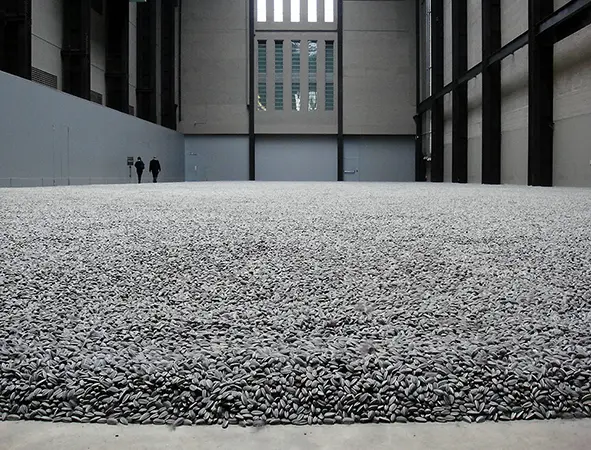
Kui Hua Zi
By Ai Weiwei (2010): Installation containing millions of individually handcrafted ceramic pieces resembling sunflower seeds. They symbolically represent an ocean of fathomless depth. The work reflects the ideology of Chairman Mao: he was the sun; his followers were the seeds.